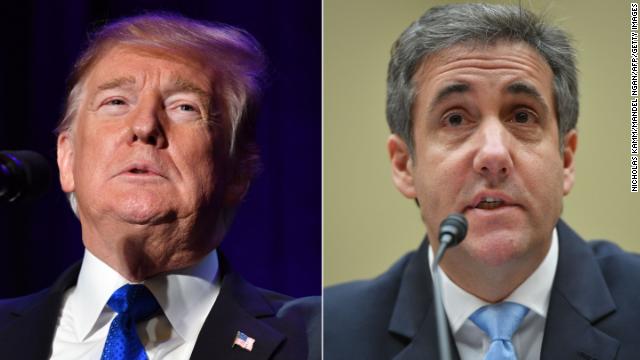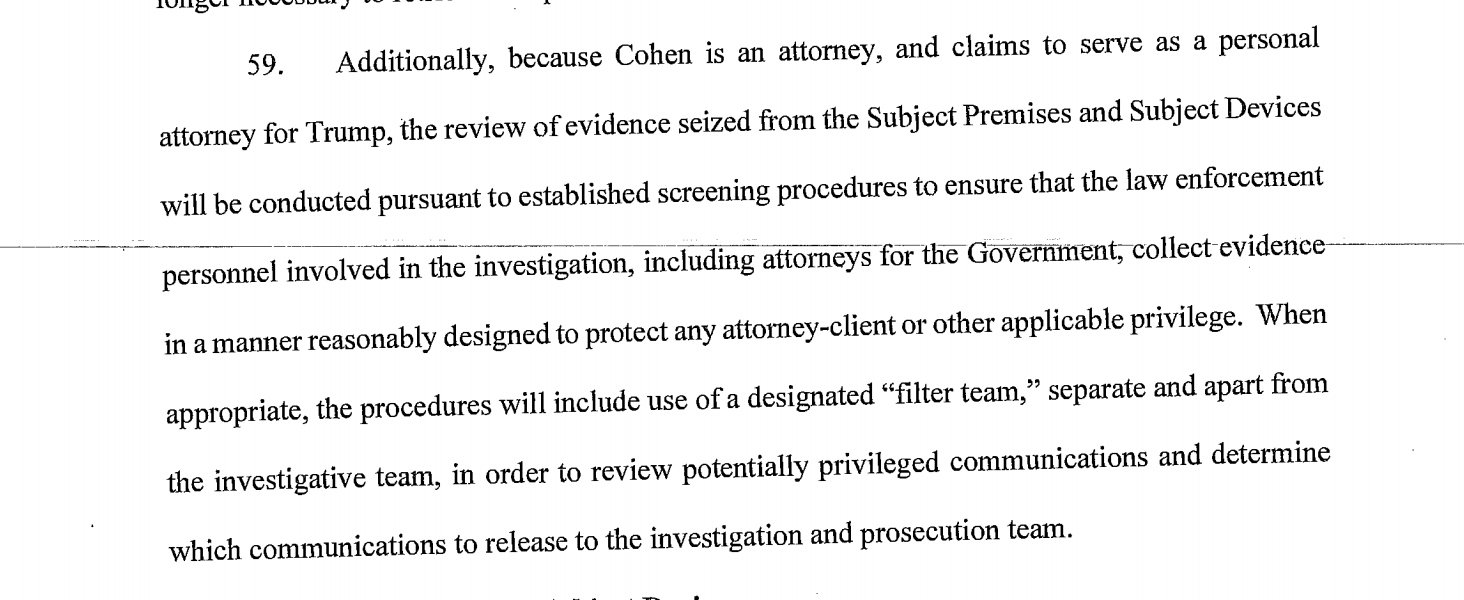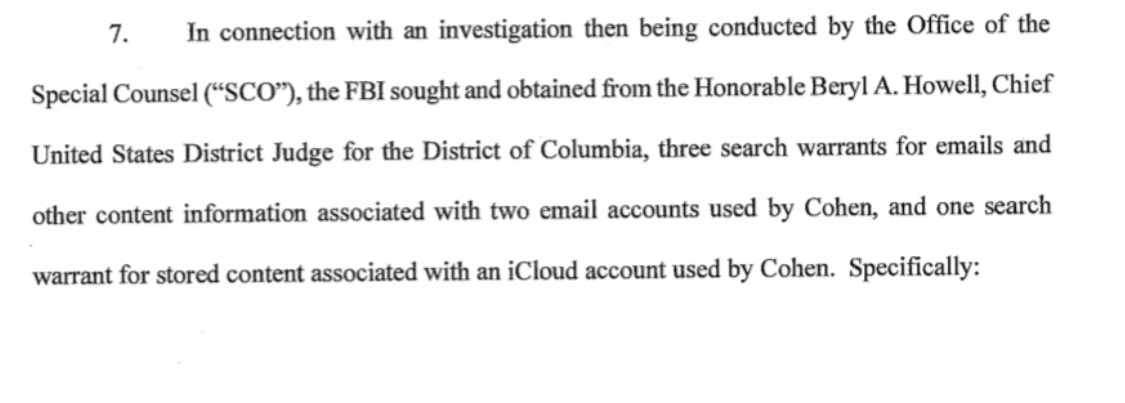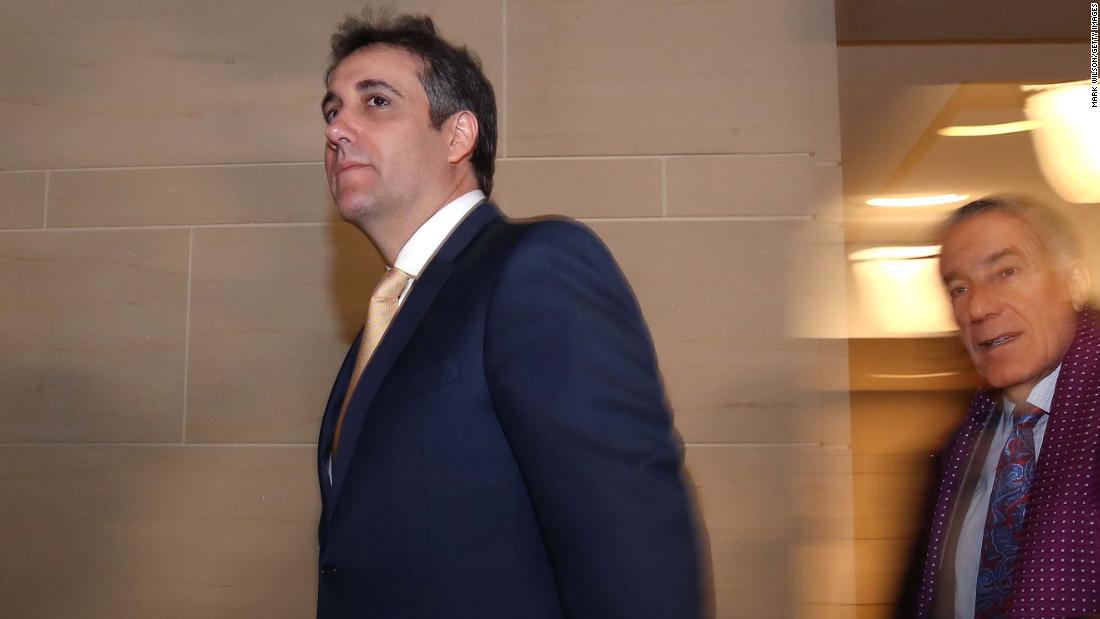A federal judge allowed Robert Mueller's investigation to review years of Michael Cohen's emails and other online data from the time he worked under Trump, according to newly unsealed warrants used in his case in Manhattan federal court.
In all, the prosecutors and FBI received permission from a DC-based federal judge to execute four search warrants on Cohen's two Gmail accounts and for stored data in his Apple iCloud account in July, August and November 2017 — long before Cohen decided to plead guilty in an illegal campaign contribution and tax prosecution led by Manhattan federal prosecutors.
The Mueller warrants looked at emails Cohen sent and received from different sets of dates:
- From January 2016 through July 18, 2017
- From June 1, 2015 through Nov. 13, 2017
What this all means: The revelation gives new illumination to Mueller's work throughout 2017 — before he had brought the bulk of his open criminal cases against defendants like former National Security Adviser Michael Flynn and a host of Russians for interfering in the election — and shows how extensively Mueller had tracked computer data of those close to the then-candidate and the early days of his presidency.










